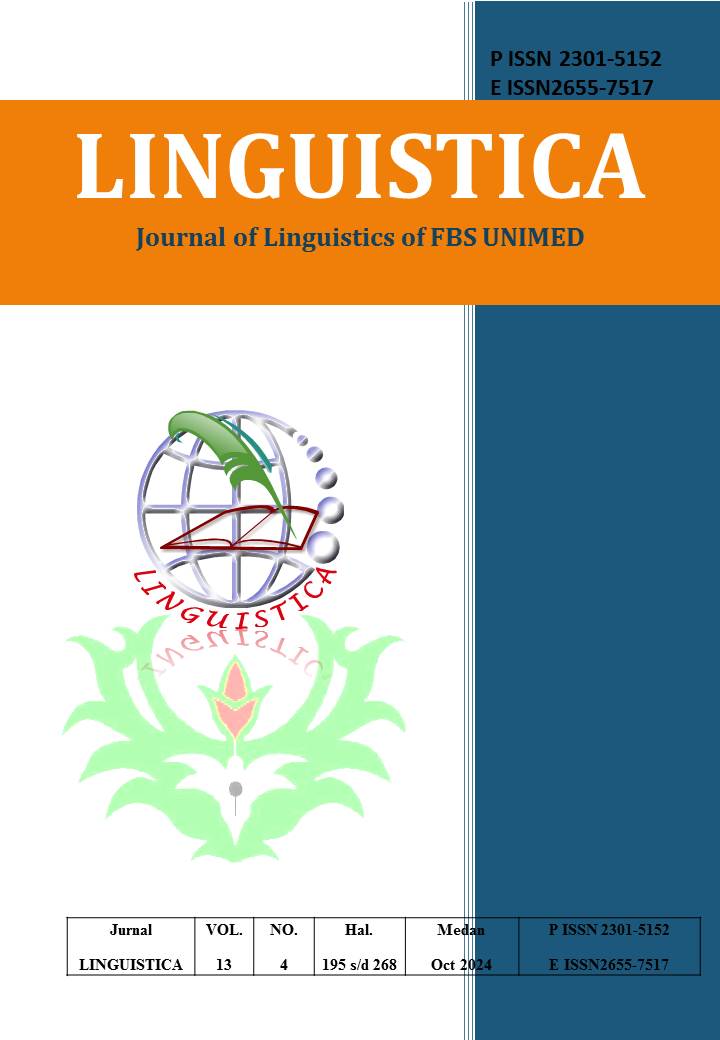A Pragmatic Analysis of Deixis in Billie Eilish's Song Lyrics "Happier Than Ever"
DOI:
https://doi.org/10.24114/jalu.v14i3.67743Abstract
This pragmatics study aims to examine the use of deixis in Billie Eilish’s song “Happier Than Ever,” focusing on its role in shaping emotional dynamics and narrative depth. Deixis, a key concept in pragmatics, connect language to specific context, including personal, spatial, and temporal. The study uses a qualitative descriptive approach to analyze how personal pronoun like “I” and “You” reflect relational conflict, spatial terms such as “home” and “away” convey emotional distance, and temporal markers like “when” and “ever” highlight shift in time and emotion. Finding reveal that deixis enriches the song’s emotional resonance, capturing themes of heartbreak, self-discovery, and emotional liberation. By exploring deixis in this song, this research contributes to understanding how linguistic elements enhance narrative and emotional expression in music.Downloads
Published
2025-07-12
How to Cite
Adelia Maha Suci, & Linda Farida Aslamiyah. (2025). A Pragmatic Analysis of Deixis in Billie Eilish’s Song Lyrics "Happier Than Ever". LINGUISTICA, 14(3), 31–38. https://doi.org/10.24114/jalu.v14i3.67743
Issue
Section
Articles
License
Copyright (c) 2025 Adelia Maha Suci, Linda Farida Aslamiyah

This work is licensed under a Creative Commons Attribution-ShareAlike 4.0 International License.
Authors who publish with this journal agree to the following terms:
- Authors retain copyright and grant the journal the right of first publication with the work simultaneously licensed under a Creative Commons Attribution License that allows others to share the work with an acknowledgment of the work's authorship and initial publication in this journal.
- Authors are able to enter into separate, additional contractual arrangements for the non-exclusive distribution of the journal's published version of the work (e.g., post it to an institutional repository or publish it in a book), with an acknowledgment of its initial publication in this journal.
- Authors are permitted and encouraged to post their work online (e.g., in institutional repositories or on their website) prior to and during the submission process, as it can lead to productive exchanges, as well as earlier and greater citation of published work (See The Effect of Open Access).
- This work is licensed under a Creative Commons Attribution-ShareAlike 4.0 International License.









